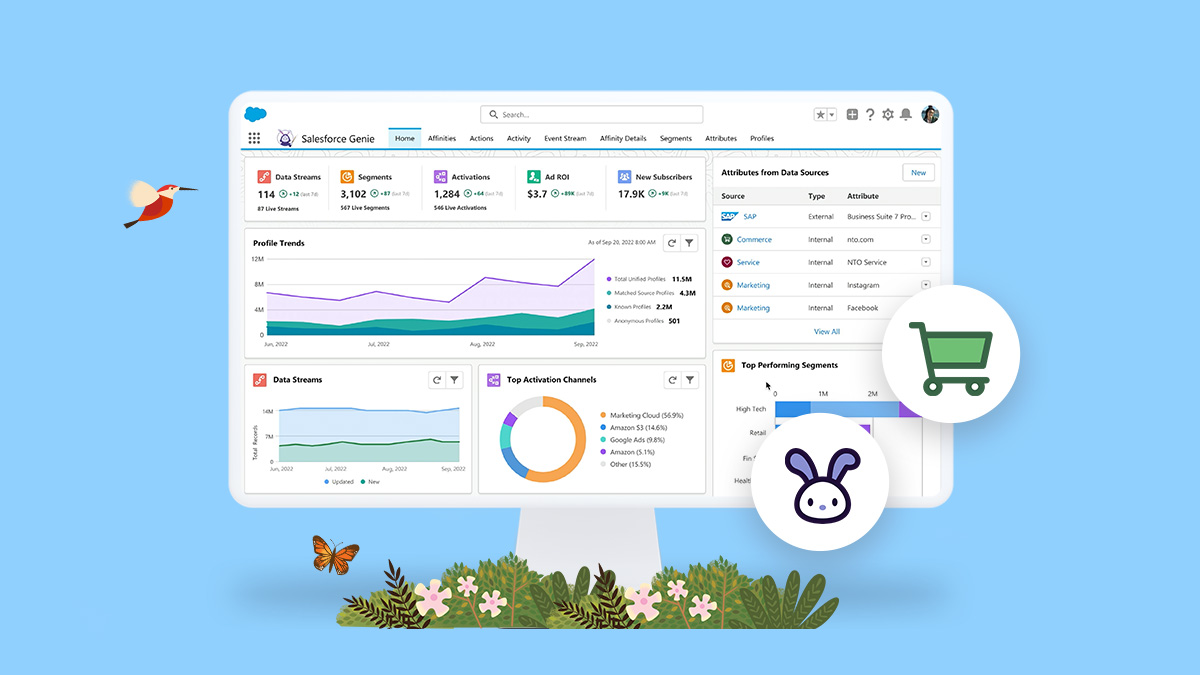Outsourcing Salesforce support offers companies numerous advantages. Firstly, it allows businesses to tap into a pool of specialized talent without having to invest in extensive training or hiring processes. This can lead to increased efficiency and productivity as the outsourced team is already skilled in handling Salesforce-related tasks. Additionally, outsourcing can provide a cost-effective solution as companies only pay for the services they need, without the additional overhead costs associated with hiring full-time employees.
Furthermore, salesforce managed service provider can help businesses stay up-to-date with the latest technology trends and updates. Managed service providers are often well-versed in the latest developments in Salesforce and can ensure that companies are leveraging the platform to its fullest potential. This can result in improved performance, streamlined processes, and ultimately, better outcomes for the business.
Understanding the Role of a Managed Service Provider
Typically, a Managed Service Provider (MSP) is an external organization that manages a company’s IT infrastructure and/or end-user systems, on a proactive basis. The role of an MSP is to ensure the smooth operation of the client’s systems and to address any IT issues that may arise. MSPs offer a range of services, including monitoring, backup and disaster recovery, network management, and cybersecurity protection.
By outsourcing the management of their IT systems to an MSP, businesses can benefit from access to a team of experts who specialize in various aspects of IT. This allows companies to focus on their core business activities while leaving the technical aspects of IT management to the MSP. Additionally, MSPs often provide round-the-clock monitoring and support, ensuring that any IT issues are addressed promptly and efficiently.
Common Challenges Faced by Businesses without Managed Services
Many businesses that choose not to utilize managed services for their Salesforce support often encounter various challenges. Without access to a dedicated team of experts, these companies may struggle with limited technical capabilities, leading to delays in resolving issues and implementing new functionalities. Additionally, the lack of proactive monitoring and maintenance can result in system downtime and decreased overall efficiency.
Moreover, businesses without managed services may find it difficult to keep up with the ever-evolving Application Management Outsourcing. Updates, patches, and new features can be overlooked or improperly implemented, leading to compatibility issues and potential security vulnerabilities. This lack of staying current with the latest advancements can hinder the organization’s ability to fully leverage Salesforce for optimal business outcomes.
How Managed Services Can Improve Salesforce Performance
Businesses that rely on Salesforce for their customer relationship management need to ensure optimal performance of the platform to drive their operations smoothly. Managed services offer a solution for businesses to enhance their Salesforce performance through expert support and maintenance. By leveraging the expertise of managed service providers, businesses can address system issues promptly, implement best practices, and optimize configurations to maximize the efficiency of their Salesforce platform.
Furthermore, managed services provide round-the-clock monitoring and proactive system management, reducing downtime and enhancing system reliability. With regular performance assessments and strategic upgrades, businesses can ensure that their Salesforce platform is always operating at its best, meeting the needs of users and driving overall productivity.
Key Factors to Consider When Choosing a Managed Service Provider
When selecting a managed service provider for your Salesforce needs, one key factor to consider is the provider’s experience and expertise in handling similar projects. Look for a provider that has a proven track record of success in implementing and managing Salesforce solutions for businesses in your industry. They should be familiar with the specific challenges and requirements that your company faces, allowing them to tailor their services to meet your needs effectively.
Another important factor to consider is the level of customer support and communication offered by the managed service provider. It is essential to choose a provider that is responsive and accessible, providing prompt assistance and updates when needed. Clear and open communication is crucial for a successful partnership, ensuring that any issues or concerns are addressed promptly and effectively to maintain the smooth operation of your Salesforce system.
Maximizing ROI with a Managed Service Provider
To maximize ROI with a Managed Service Provider, businesses need to establish clear metrics and key performance indicators (KPIs) that align with their specific goals and objectives. By setting concrete targets, companies can track the impact of the managed services on their Salesforce performance and overall business outcomes. Regular monitoring and analysis of KPIs allow organizations to make data-driven decisions and optimize their investment in the Managed Service Provider.
Furthermore, collaboration and communication between the business and the Managed Service Provider are critical for maximizing ROI. Open dialogue, frequent updates, and feedback loops ensure that both parties are aligned on strategies and priorities. By fostering a partnership based on transparency and trust, businesses can leverage the expertise and capabilities of the Managed Service Provider to drive efficiency, innovation, and ultimately, greater returns on investment.
What are the benefits of outsourcing Salesforce support?
Outsourcing Salesforce support to a managed service provider can reduce costs, improve efficiency, provide access to specialized expertise, and allow businesses to focus on their core competencies.
How can managed services improve Salesforce performance?
Managed services can improve Salesforce performance by providing proactive monitoring, regular maintenance, system optimization, user training, and support for customization and integration.
What key factors should businesses consider when choosing a managed service provider?
Key factors to consider when choosing a managed service provider include expertise in Salesforce, experience with similar industries, service level agreements, scalability, pricing, and customer references.
How can businesses maximize ROI with a managed service provider?
Businesses can maximize ROI with a managed service provider by leveraging their expertise to optimize Salesforce performance, reduce downtime, improve user adoption, and drive business value through customized solutions and strategic guidance.
